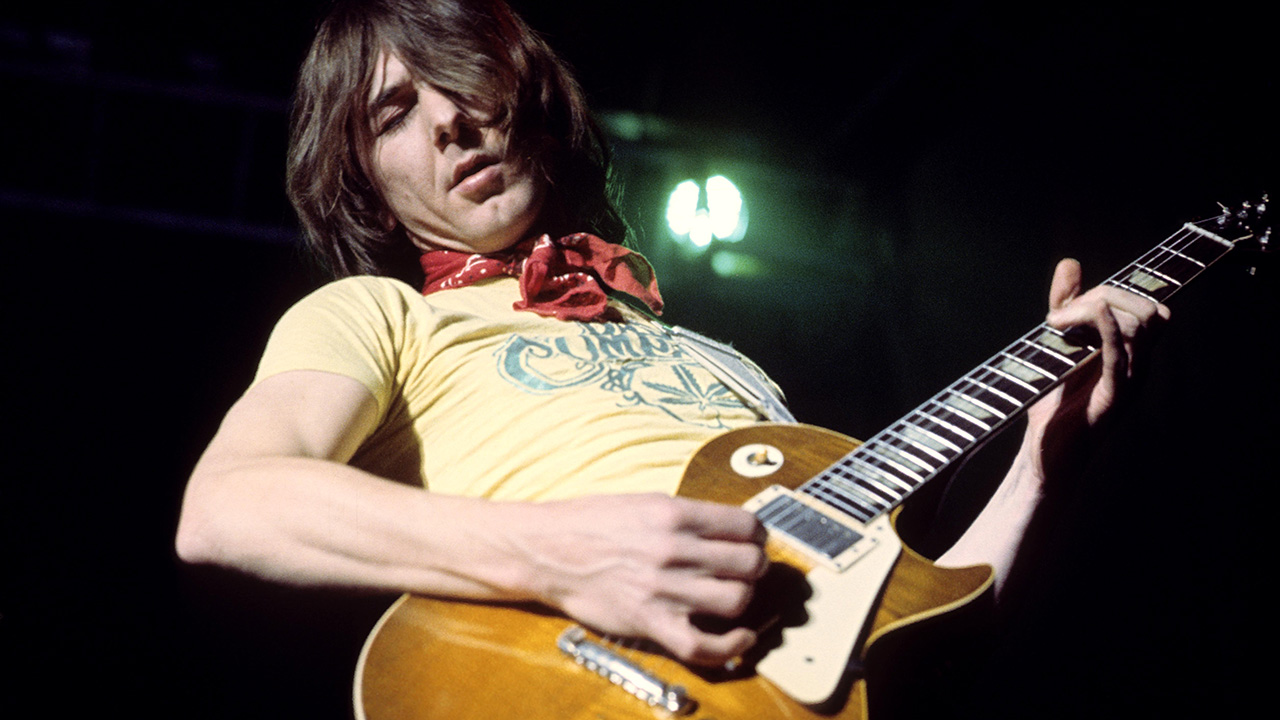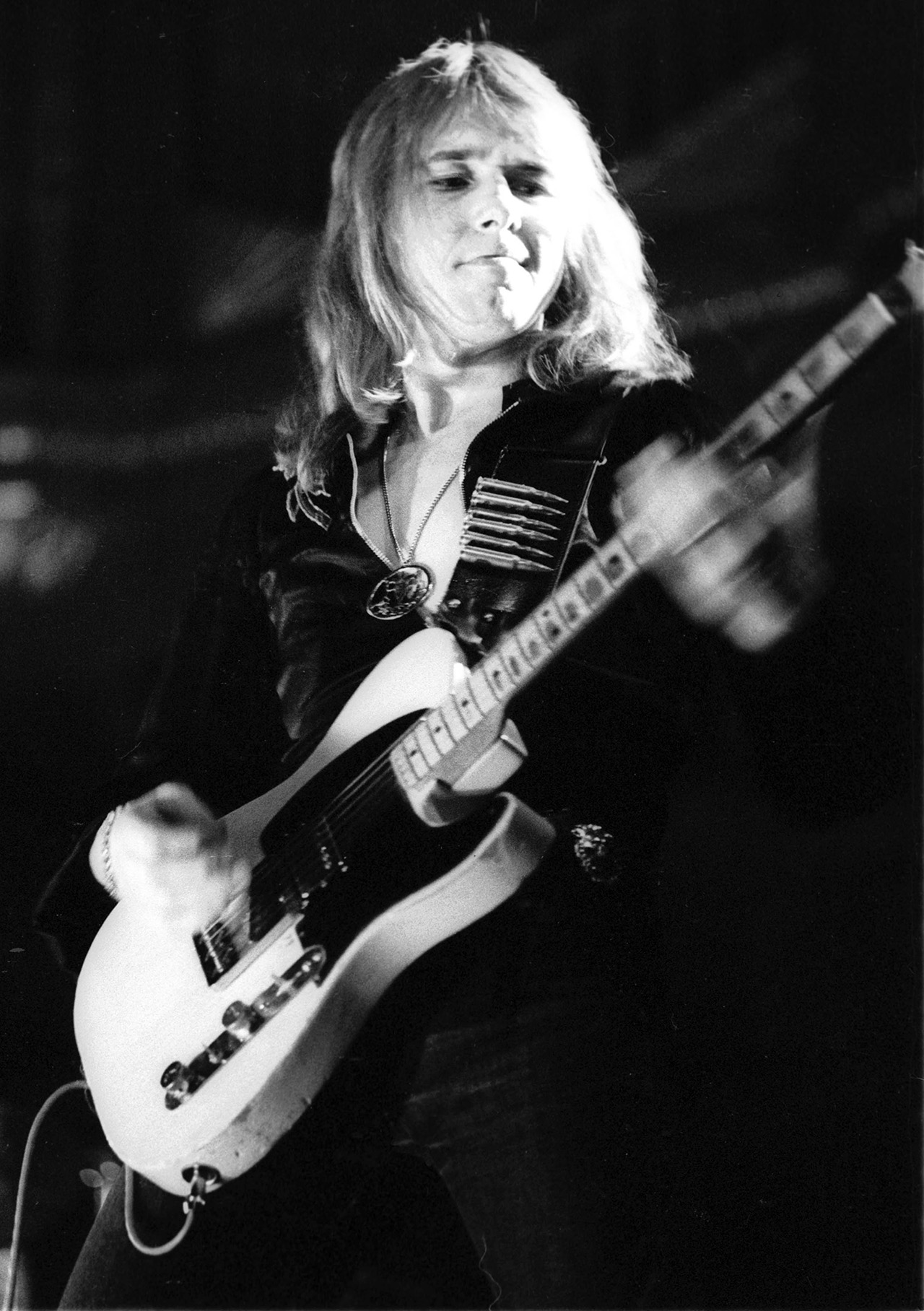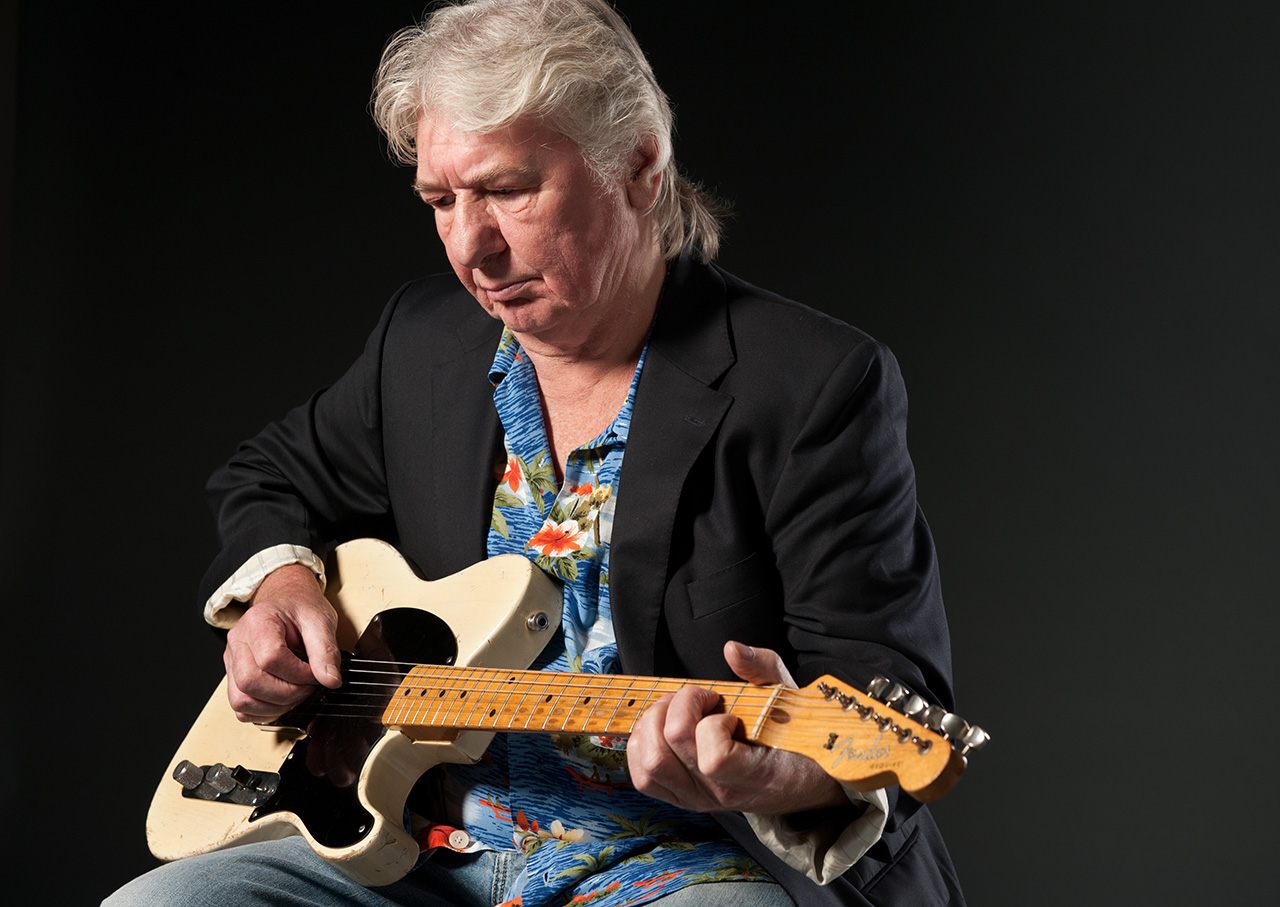“David Bowie gave them the song, but Mick wrote the intro – the lick of all licks”: A tribute to Mick Ralphs, Mott the Hoople and Bad Company's rock-steady straight shooter
The underrated guitarist, who died aged 81 in June, had an uncanny ability to blend restraint, melody, and songwriting, giving Mott the Hoople and Bad Company hits that remain on radio decades later

On June 23, 2025, the guitar world lost Mick Ralphs of Bad Company and Mott the Hoople fame. He was 81. He was an amazing songwriter, and a blues/rock guitarist who played with wonderful feeling, phrasing, melody, groove, and tone.
Ralphs was underrated partly because he was a master of restraint, who could say more with a few perfectly placed notes than most shredders can say with a furious flurry of “look-at-me” sweep arpeggios.
He knew when not to play; he’d use poignant pauses between phrases to let his guitar sing and his melodies breathe. As his Mott bandmate Ian Hunter once said, “Mick always played for the song, not the spotlight. He was the soul of the riff.”
Those playing sensibilities combined with an ability to pen seminal rock songs, with rare and magical results. Can’t Get Enough, Moving On, Simple Man, and Good Lovin’ Gone Bad remain staples of classic rock radio, along with Feel Like Makin’ Love and Deal with the Preacher, which he co-wrote with Bad Company’s Paul Rodgers.
Ralphs was born on March 31, 1944, in Herefordshire, England. Like many others, his first guitar was a cheap one – a Rosetti Lucky 7, which happened to be the same model Paul McCartney took to Hamburg with the then-unknown Beatles in 1960.
The song that first inspired a young Ralphs to pick up the instrument was Green Onions by Booker T. & the MG’s, which came out in 1962. He said it was the song’s groove and “nasty” guitar playing that planted the seed.
It hooked him on R&B, but his pool of influences quickly grew to include Muddy Waters, Otis Rush, Buddy Guy, Freddie King, B.B. King, Albert King, and Chuck Berry – he credited Berry for helping him develop a sense of “rolling rhythm.”
All the latest guitar news, interviews, lessons, reviews, deals and more, direct to your inbox!

He started playing in bands as a teen, and worked as an electrical engineer before becoming a full-time musician in 1966. Just like the Beatles, he’d often go to Germany to play in clubs for weeks at a time.
He got his first big break when he joined Jamaican singer Jimmy Cliff. The band was often Ralphs with a bassist and a drummer, which helped develop his signature combination of rhythm and lead lines.
He established himself with the oddly named Mott the Hoople, which he co-founded. The group had an eclectic sound that melded glam rock with the street-smart vibe of punk and hard rock.
Hunter’s clever, often tongue-in-cheek lyrics and gritty delivery completed their unique sonic recipe. While their high energy live performances earned them a fervent following, their first four albums were anything but commercially successful.
Consequentially, in 1972, they decided to call it quits; but David Bowie offered the band a song in the hope they’d finally break through. When Mott recorded and released All the Young Dudes, it reached Number 3 in the UK and made waves in the US too.
Their 1973 album, Mott, spawned two more UK hits, Honaloochie Boogie and All the Way from Memphis. Later that year they hit again with Roll Away the Stone, recorded soon before Ralphs decided to quit.
Those records showcase Ralphs’ penchant for compelling, repeating lead lines that became integral hooks within a song. Dudes, Boogie, and Stone each open with an instantly memorable Ralphs melody line. Def Leppard’s Joe Elliott said of Dudes: “Bowie gave them the song, but Mick wrote the intro – the lick of all licks.”
Ralphs had come to feel creatively constrained in Mott. He’d met Free legend Paul Rodgers as leader of support band Peace and they’d quickly bonded musically. They’d planned to form a side project and record an album, but when Free drummer Simon Kirke asked to sit in, Bad Company was formed along with ex King Crimson bassist Boz Burrell.
Ralphs had brought several finished songs with him, including Can’t Get Enough and Moving On. Rodgers had his own ideas and the pair began writing together, too. One of the first songs the singer presented was Rock Steady, later covered by a pre-fame Van Halen.

Bad Company approached Led Zeppelin manager Peter Grant; after he heard them rehearse, they became the first band on Zeppelin’s Swan Song label. Their self-titled debut album, released in 1974, quickly catapulted the band to multiplatinum, stadium-filling success.
Straight Shooter (1975) and Running with the Pack (1976) consolidated the supergroup’s superstar status. Although they disbanded in 1982 – reuniting on many occasions with various lineups – Bad Company are still a highly revered band.
Ralphs said: ‘Keep it simple – let it sing’… that makes a lot of sense
In addition to his time with Mott and Bad Company, Ralphs released a couple of blues/rock solo albums, toured with David Gilmour, and co-wrote a song with former Beatle George Harrison in the late ‘70s: Flying Hour was born of the Henley Music Mafia, a gathering of Thames Valley musicians Harrison hung out with.
To many, Ralphs is synonymous with the “Les Paul straight into a Marshall stack” sound, but he also used a Fender Esquire; its open-C tuning gives Can’t Get Enough its distinctive chime.
His go-to in the Mott era was a Les Paul Junior – they opened for Mountain in 1972 and Ralphs was blown away by the colossal sound Leslie West conjured from his own Junior; so he bought one at a pawn shop.
On October 29, 2016, Bad Company concluded a UK tour at London’s O2 Arena. Sadly, just a few days later, Ralphs suffered a debilitating stroke and was forced to retire from touring. His passing was due to complications from the episode.
A guitarist friend of mine fondly recalled an old magazine interview in which Ralphs said: “Keep it simple – let it sing.” Coming from the man who wrote Simple Man and had an amazing ability to create lead lines that became hooks, that makes a lot of sense.
Ralphs truly did let his guitar sing. He also kept it simple – simply, timelessly brilliant.
You must confirm your public display name before commenting
Please logout and then login again, you will then be prompted to enter your display name.


